Juicing and Skin Lightening: Can Juicing Help with Skin Whitening? The Real Deal?

There are many websites claiming to have juicing recipes that will effectively lighten the skin. The implication is that juicing is an effective way of gaining nutritional benefits. They claim that preparing drinks with supposedly natural skin lightening foods will naturally lighten the skin. Juicing recipes attributed to skin lighting include juices made from various fruits, vegetables, and herbs.
Table of Contents
- 1 Can Juicing Lighten the Skin?
- 2 What Causes Dark Skin?
- 3 Natural Skin Lightening Agents
- 4 Vitamin C/Ascorbic Acid and Skin Lightening
- 5 Arbutin and Skin Lightening
- 6 Niacinamide and Skin Lightening
- 7 Papaya, Papain, and Skin Lightening
- 8 Licorice and Skin Lightening
- 9 Mulberry and Skin Lightening
- 10 Juicing and Skin Lightening
- 11 Author Bio:
- 12 Related Posts
Can Juicing Lighten the Skin?
People who are interested in skin lightening often wonder if certain fruits in juice blends can be used to produce a lighter, more even complexion. The short answer to this question is yes. This does not mean that juicing will lighten the skin, though.
This is primarily due to the way the body processes food and nutrients that enter the body through the dietary system and travel through the bloodstream. Once people consume these food and nutrients orally, various processes can occur and affect how quickly the nutrients travel through the system and are eliminated from it.
Bodily processes also determine where those nutrients will go in the body and what they will do to it. Whereas juicing is often healthy, there is no evidence that indicates that consuming natural foods will distribute those specific benefits to the desired parts of the body.
Consuming juices will provide the nutritional benefits of the drinks, but there is no way to ensure that specific lightning qualities will occur just by drinking foods that contain nutrients that may reduce pigment in the skin. Most studies on skin lightening with natural products have used the products as topical agents (substances applied to local areas). There is no data supporting the use of drinks for skin lightening purposes.
Despite that there is no scientific evidence that juicing can be used as a skin lightening procedure, the natural qualities of plants may be useful when used in other ways. They are safe, natural products that may be excellent ways to remove dark spots and dark pigmentation. Meanwhile, people continue to search for safe and natural ways to lighten the skin.
What Causes Dark Skin?
To understand why certain natural plants and herbs can lighten the skin, it is good to know why the skin darkens in the first place. Darkened skin comes from an overabundance of melanin. Melanin is a natural pigment in the body produced by melanocytes, which are cells underneath the skin.
Next, the amino acid tyrosine comes into play. Tyrosine creates melanin by using melanocytes to produce tyrosinase, an enzyme that converts to melanin in the skin. Once this process has completed, the result is a darkening of the skin. The level of skin darkness depends on how much melanin the melanocytes produce.
Various catalysts may trigger the production of melanin. Some of these catalysts include medications, sun exposure, hormonal imbalances, and more. By its ability to hinder the production of tyrosinase, vitamin C may stop the darkening of the skin by limiting the amount of melanin the body produces.
Natural Skin Lightening Agents
There are many foods that may have natural skin lightening properties, including:
-
Vitamin C
-
Arbutin
-
Niacinamide
-
Papaya juice
-
Mulberry juice
-
Licorice
Vitamin C/Ascorbic Acid and Skin Lightening
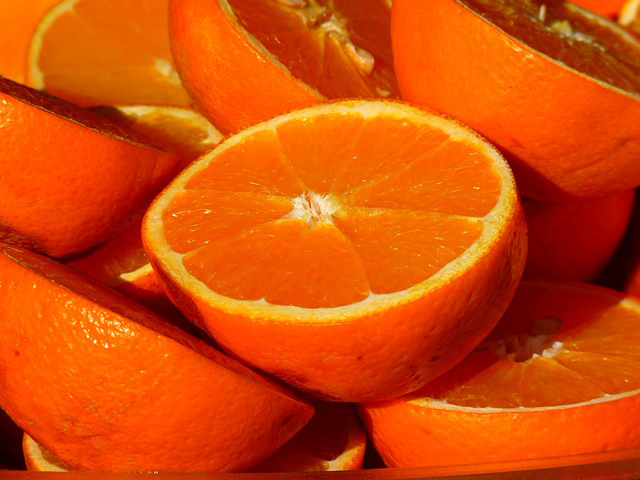
Not all fruits and vegetables are created equal. Certain fruits contain higher levels of Vitamin C (ascorbic acid) than others. Some foods high in amounts of vitamin C include strawberries, papayas, yellow bell peppers, kale, broccoli, oranges, and kiwis, among others.
While vitamin C-rich fruits and vegetables positively affect nutrition, if you are looking for skin lightening qualities from vitamin C or other natural sources, it is important to think about the role of vitamins and other nutrients. Concentrated higher levels of ascorbic acid are needed to extract the potential skin lightening benefits of vitamin C . Ascorbic acid may be particularly powerful when people extract it from fresh organic fruits and vegetables.
Ingesting fruits that are rich in L-ascorbic acid (pure vitamin C) offers some lightening and nutritious benefits, but the benefits are limited because the body does not retain ascorbic acid for long. In fifteen or twenty minutes, all the benefits of this important nutrient can be flushed from the body via a person’s urine.
For this reason, the most efficient way to use L-ascorbic acid is as a topical agent or cream. In this form, ascorbic acid effectively and directly penetrates the skin. It should be noted that the direct application of L-ascorbic acid can cause sun sensitivity and even skin irritation. Ascorbyl glucoside (a derivative of ascorbic acid) is weaker than L-ascorbic acid and may be a gentler alternative that is less likely to cause problems for sensitive skin.
Ascorbic acid is often used as a natural preservative in food and can be added to juices to amplify the antioxidant effects of Vitamin C. Vitamin C interrupts melanogenesis . This means it blocks the creation of melanin. It inhibits melanin by impeding the production of tyrosinase, the enzyme responsible for producing melanin. Ascorbic acid removes radicals that may cause increased skin pigmentation as it detoxifies the body. It encourages the exfoliation of dead skin and helps regenerate new skin cells.
When people add ascorbic acid to ingredients such as licorice or other products associated with reducing pigmentation, the effect is intensified. Again, although ascorbic acid may be a skin lightening agent, just drinking it as juice might not be enough to lighten the skin.
With vitamin C and other natural skin lighteners, the method of application determines the effectiveness. Topical application is a better method to obtain its skin lightening benefits. While drinking fresh sources of vitamin C will provide an abundance of nutrients and health benefits for the skin, its skin lightening properties will not be noticeable by this method alone. To lighten the skin with vitamin C, topical application is necessary.
Arbutin and Skin Lightening
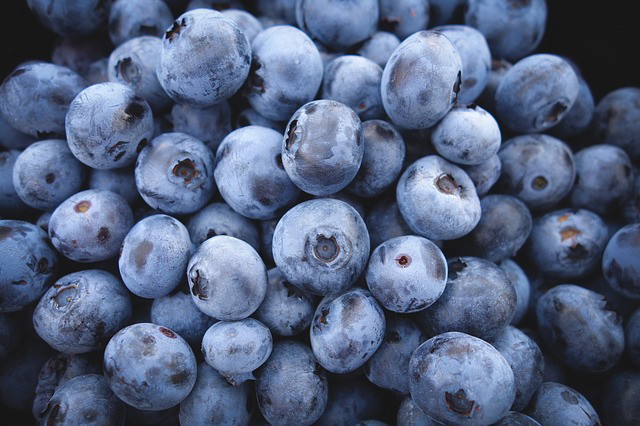
Occurring naturally in various fruits, arbutin is another powerful lightening agent. Some fruits include blueberries, cranberries, pears, and bearberries (also known as mealberries). Arbutin is significant because it is a natural alternative to hydroquinone, a substance that is available in over-the-counter lightening agents.
Hydroquinone is not without risks . It can cause skin conditions such as ochronosis (discoloration) and severe allergies. In laboratory animals who received enormous dosages of hydroquinone, it has been identified as a carcinogen. Arbutin produces fewer risks and may serve as a healthier, more natural alternative to hydroquinone that may be effective for lightening the skin.
Arbutin is a hydroquinone derivative with an added glucose or sugar base. Like hydroquinone, arbutin inhibits tyrosinase and prevents the production of melanin. The hydroquinone inhibits the production of tyrosinase because it closely resembles tyrosine. Since the body’s enzymes attach to the sugars in arbutin, the process produces a slower, more measured release of hydroquinone and prevents an overload. Researchers have conducted studies on the melanin-inhibiting properties arbutin for decades, producing a large body of scientific proof of its benefits.
As with vitamin C, the application method for arbutin is key. The topical application of arbutin is more effective than drinking the juice from fruits containing it. Arbutin releases hydroquinone through its contact with water, a process known as hydrolysis.
Hydrolysis is a slow process. Drinking juice containing arbutin would force it through the dietary system too quickly, negating the skin lightening benefits. Applying arbutin directly as a topical agent allows it to penetrate the skin and do its work to suppress tyrosinase.
Niacinamide and Skin Lightening
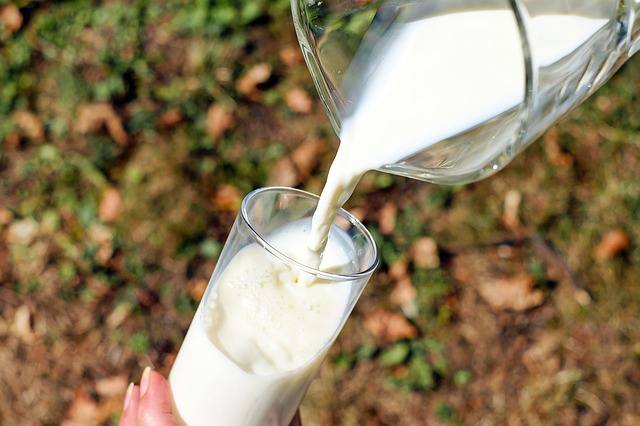
As its name indicates, niacinamide is a natural skin lightening product that comes from the mineral niacin. Also known as nicotinamide, niacinamide is a form of vitamin B. Natural occurrences of vitamin B occur in fish oil, milk, and green vegetables. Niacinamide may lighten the skin by possibly impairing the movement of melanosomes from the melanocytes to the keratinocytes. Keratinocyes are cells that manufacture keratin, a protein that produces skin, nails, hair, and other body parts in different animals. Kertain also helps healing wounds.
For people with uneven skin tone or dark pigment spots, niacinamide may be an effective lightening choice. Besides skin lightening, it may help eliminate wrinkles, redness, and other conditions associated with aging skin. Niacinamide reduces pigmentation by producing collagen, a protein that forms connective tissues in the body.
Although the foods that produce niacinamide produce healthy juices, there is no data on whether drinking niacinamide-producing natural foods will lighten the skin. The digestive system distributes vitamins and nutrients differently from topical agents. When people apply niaminacide to the skin, the benefits directly affect the afflicted areas instead of waiting for the dietary system and bloodstream to distribute the nutrients.
While people frequently use niaminacide orally as a treatment for iron deficiency, they must use it as a topical agent for skin lightening benefits. It is a safe skin lightening alternative found as both a stand-alone serum and as an ingredient added to other skin lightening products.
Papaya, Papain, and Skin Lightening
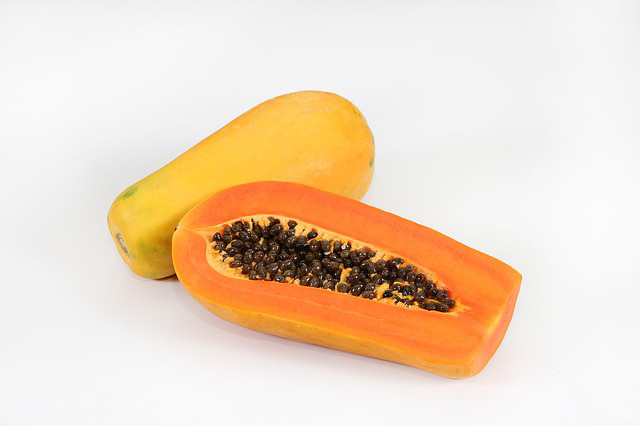
Studies on the natural cosmetic benefits of papaya claim that the fruit is an effective skin lightening agent. Its potential lightening properties are attributed to the exfoliating quality of the plant. Skin lightening may occur when people slough off old, dead, and darkened skin cells and replace them with new ones.
Papain is the active lightening ingredient in papaya and can break protein into amino acids. Papaya is normally used for skin cleansing as a soap that produces natural, gradual skin lightening. The papain in the soap breaks down proteins and dissolves dead skin cells. Since papaya soap removes the outer layer of the skin, it may remove scars from the skin’s surface.
Consuming papaya may produce nutritional benefits and clear, healthy skin. It should be noted that using papaya to fade scars and dark spots gradually will likely not produce extreme whitening effects. Therefore, papaya and papain’s effects may not be as noticeable as other skin lightening agents.
Licorice and Skin Lightening
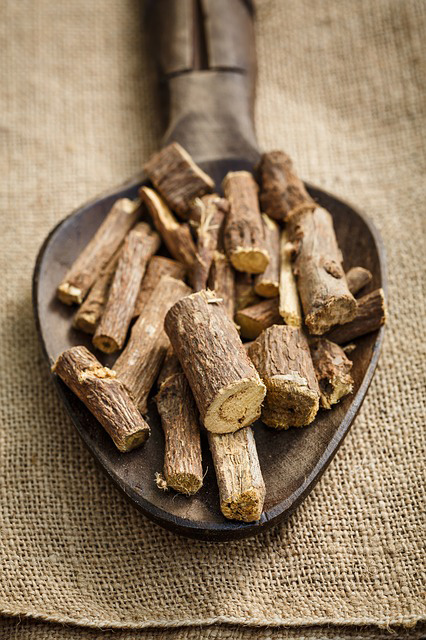
Some people are surprised to learn that licorice may be an effective skin lightening agent. Licorice contains an active byproduct called glabridin. Glabridin enables licorice to limit the amount of pigment in the skin. It may even skin tone and fade discolorations. People apply licorice as a topical agent by applying it to the skin on a daily basis or as a main ingredient in facial masks.
Licorice comes from a plant called Glycyrrhiza glabra. The licorice herb comes from the root of the plant. Its active ingredient, glabridin, reduces the amount of melanin produced in the skin. Licorice also inhibits the production of tyrosinase. Licorice and glabridin are used as ingredients in several skin whitening beauty products.
By stopping the overproduction of melanin in the skin, licorice may even skin tone. Licorice also contains liquiritin, a substance that helps rid the skin of melanin. The treatment is safe for most people and may gradually lighten the skin.
It is also another natural skin lightening alternative to hydroquinone. In addition to its possible effectiveness, licorice is one of the safest lightening agents. As with other skin lightening treatments, regular application and patience are important. Results may come over time.
Mulberry and Skin Lightening
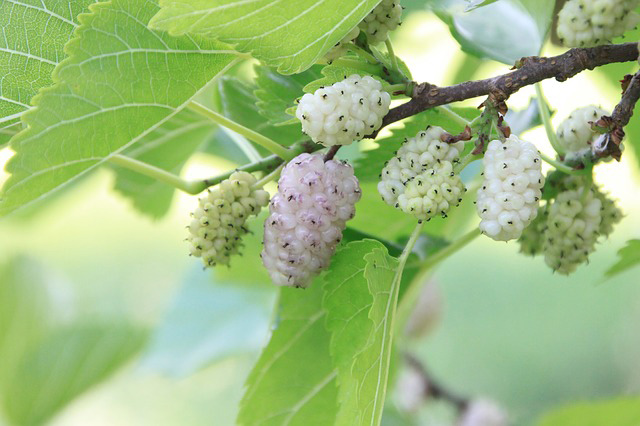
Morus alba L. , or the white mulberry tree, is another plant that may be an effective skin whitening agent. Similar to other potential skin lighteners, mulberry extract may lighten the skin by inhibiting tyrosinase. Without tyrosinase, the body cannot produce melanin.
Mulberry extract may lighten the skin. It is mild enough to be used in conjunction with other skin whitening products without producing skin irritation. Its potential effectiveness may be seen by its popular use in many skin lightening preparations.
Positive test results from studies testing the efficacy of mulberry for skin lightening and news of its mild properties have made mulberry one of the most popular competitors to hydroquinone. Study participants did not report many adverse reactions using the substance. By inhibiting the formation of melanin and impairing tyrosinase formation, it may prevent darkened skin from forming. People commonly apply mulberry extract to the skin as a topical oil or a facial mask.
Juicing and Skin Lightening
Unfortunately, there are no conclusive studies that prove that juicing or drinking the juice of plants with potential skin whitening properties may lighten the skin. Testing on natural skin lightening agents has normally been performed on direct, topical applications. The good news is, there are now many natural and safe ways that may reduce pigmentation, even skin, and remove dark spots.
Author Bio:

Nicole is a freelance writer and educator based in the Michigan and believes that her writing is an extension of her career as a tutor. She covers many topics like travel, mental health and education. She is a key contributor to Chapters Capistrano’s website where she covers topics like addiction recovery, holistic treatments and health education. When she isn’t writing, you might find Nicole running, hiking, and swimming. She has participated in several 10K races and hopes to compete in a marathon one day.

Leave a comment